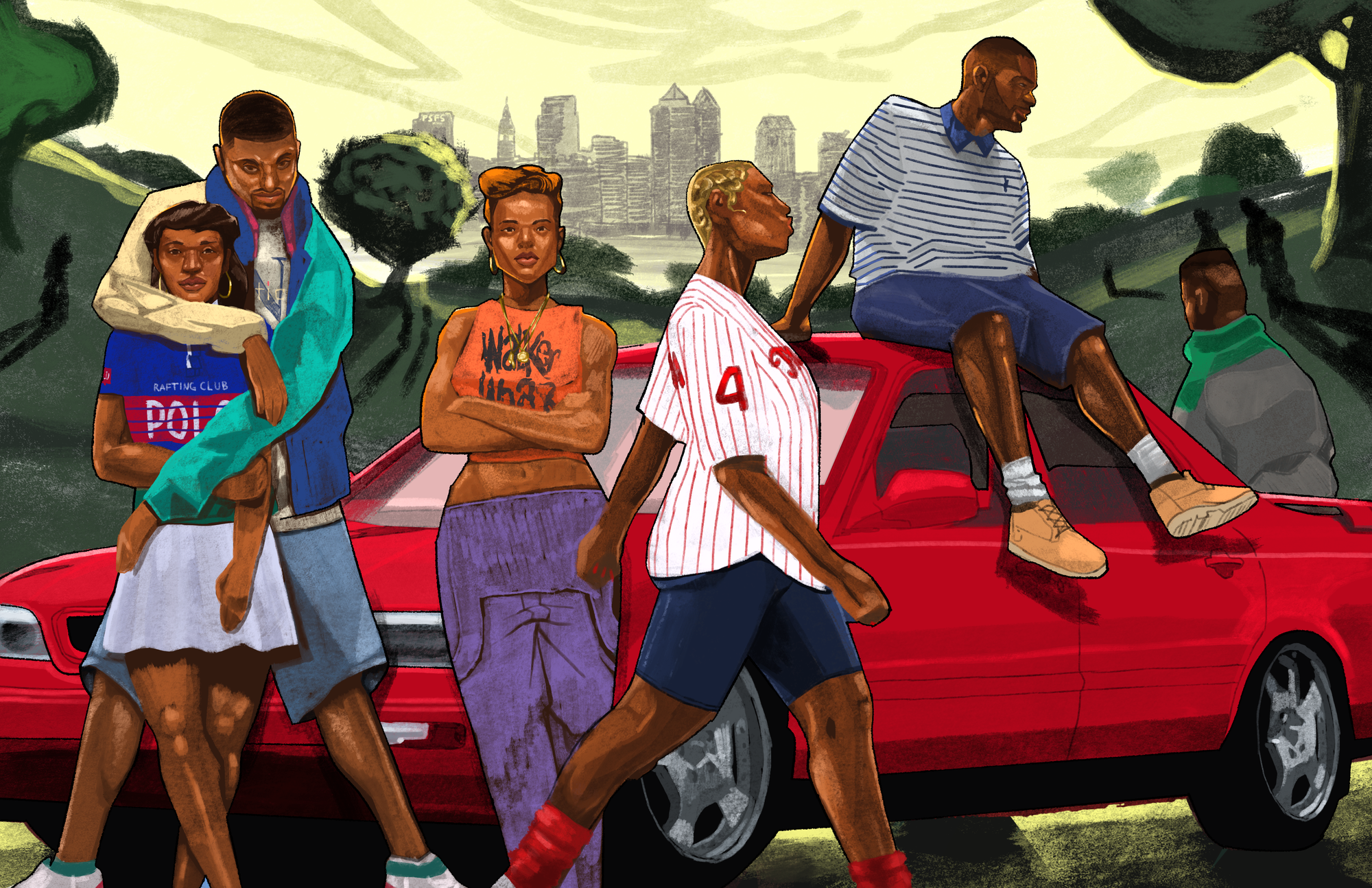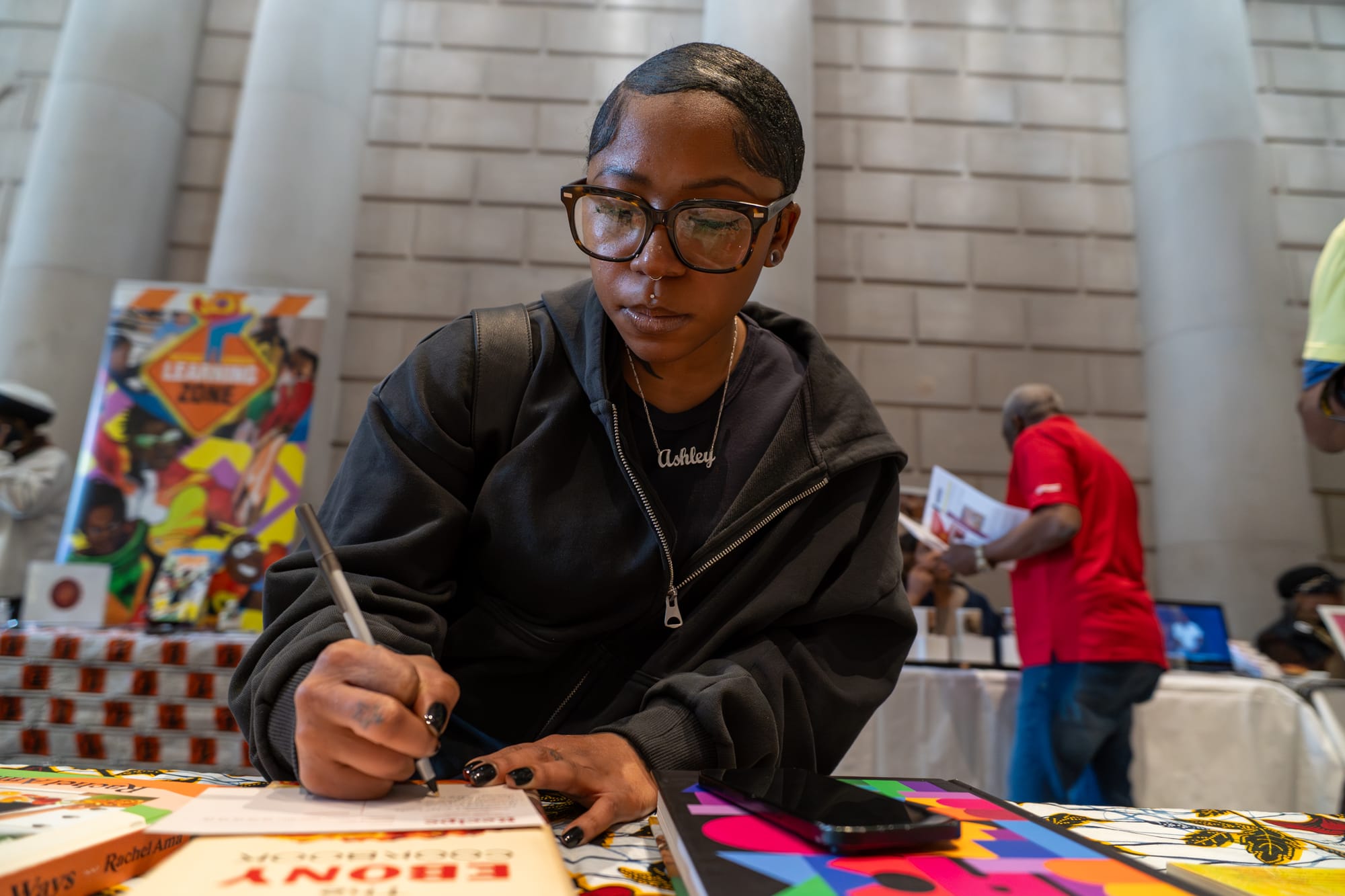Here’s How Mass Deportations Could Impact Philadelphia
Unlike last time, the president-elect plans to use his power through executive orders to call for a national emergency, and then use the military to remove people.
Donald Trump has promised to launch mass deportations. Given the executive branch's broad control over immigration and a Republican House and Senate, it’s difficult to see how this does not happen.
Unlike last time, the president-elect plans to use his power through executive orders to call for a national emergency, and then use the military to remove people. He has said the most efficient way to do this would be through camps on the southern border.
For Philadelphia, a city defined by its rich cultural history and diverse communities, this is more than a political talking point. It is a direct assault on families, neighborhoods, and the social fabric that holds them together.
And for Black Philadelphians, the stakes couldn’t be higher. Trump’s false rhetoric frames undocumented immigrants as a threat to Black workers, a false narrative that hides the real dangers his policies bring: violent ICE raids, fractured communities, and a city left reeling from fear and distrust.
The idea that undocumented immigrants are stealing jobs from Black Americans is not just misleading—it’s a lie. Trump used this narrative to pit vulnerable groups against each other, hoping to distract from the deeper issues at play. Black unemployment in Philadelphia is not the fault of immigrants; it’s the result of decades of systemic racism, economic disinvestment, and policies that have consistently failed Black communities. Immigrants, far from being competition, are often allies in shared struggles against poverty, over-policing, and neglect.
We’ve seen the violent reality of ICE raids before. These are not surgical operations targeting dangerous criminals. They are militarized incursions designed to terrorize. Agents storm homes in the middle of the night, dragging people away in front of their children. Workplaces are raided without warning, leaving employees in handcuffs and families wondering if their loved ones will ever come home. Schools, places of worship, and entire neighborhoods are transformed into zones of fear. These raids aren’t just about enforcing immigration laws—they’re about sending a message: You don’t belong here.
For Black Philadelphians, the return of such policies is a grim reminder of the fragility of community. Philadelphia’s Black neighborhoods have long been under siege from over-policing and systemic neglect. The introduction of mass deportations will only deepen the trauma. ICE raids don’t happen in isolation; they create ripple effects that touch everyone. When immigrant workers are taken from their jobs, the businesses they sustain suffer. When children lose their parents, schools struggle to support them. When communities live in fear, the bonds of trust and solidarity that keep them strong begin to fray.
What makes Trump’s plan even more dangerous is how it exploits economic frustrations in Black communities. Philadelphia has one of the highest poverty rates among large U.S. cities, and its Black residents bear the brunt of that inequality. Jobs are scarce, wages are low, and opportunities for upward mobility are elusive. But immigrants are not to blame for these realities.
The truth is, Black and immigrant communities in Philadelphia share far more in common than Trump—and those who thrive on division—want us to believe. Yet over the past few weeks, I’ve seen some fall into the elusive trap of seeing each other as separate, even adversarial. Frustrated people, angry that their fellow citizens did not act in their interests, posting vengeful videos.
As a political writer, it’s hard to be quiet when I see things like this. I’ve noticed how the rhetoric of division works, tempting some Black voters to feel that the burden of Trump’s mass deportation plan does not fall on their shoulders. The logic is understandable but flawed: because they voted for Harris, they may think the harm will be limited to migrants and Latino communities. But that couldn’t be further from the truth.
The reality is that both groups face structural barriers that limit their potential. Both endure over-policing and are disproportionately targeted by the criminal justice system. Both wrestle with the same forces of economic exploitation, systemic racism, and political neglect that erode opportunities and perpetuate inequality. The pain inflicted on one community inevitably ripples into the other. Their struggles are intertwined, and so is their strength. Standing together isn’t just a strategy—it’s a necessity. The same companies in the prison industrial complex that made jails for Black boys and girls are now working with Trump to build camps for undocumented immigrants.
Solidarity is the only antidote to the division. Black Philadelphians understand better than most the pain of families torn apart by unjust systems. The legacy of mass incarceration and over-policing has left deep scars, and the echoes of those injustices are heard loud and clear in the cries of children whose parents are taken in the dead of night by ICE. This shared pain is a reminder of what is at stake: the dignity and humanity of all Philadelphians.
We’ve been here before. During Trump’s first term, Philadelphia saw firsthand the fear and destruction wrought by his immigration policies. But it also saw resistance. Activists, community leaders, and everyday residents came together to push back. They created rapid-response networks to warn of ICE raids, provided legal aid to those detained, and offered sanctuary to those at risk. Philadelphia proved then that it could be a city of refuge, a city that values its diversity and refuses to be complicit in cruelty. That must return now, stronger and more unified than ever.
For those directly impacted by immigration enforcement—or for allies who want to help—here are four trusted organizations providing legal assistance and community support in Philadelphia.
These organizations are vital lifelines in the fight against unjust immigration policies. Whether you need support or are looking to join the resistance, they offer practical help and a path toward building a stronger, more united Philadelphia:
Nationalities Service Center (NSC)
NSC provides comprehensive immigration legal services, including help with asylum applications, DACA renewals, and deportation defense. They also offer social services such as housing assistance, health access, and job training for immigrants and refugees.
A community-led, immigrant organization, Juntos empowers immigrants through advocacy, education, and organizing. They focus on defending immigrant rights, including fighting deportations and providing support for families impacted by ICE raids.
Specializing in legal aid for immigrants and refugees, HIAS PA offers representation for asylum seekers, family reunification, and protections for victims of domestic violence and human trafficking. They also run workshops to educate communities about their rights.
The New Sanctuary Movement of Philadelphia
Rooted in faith-based activism, this organization provides sanctuary support to individuals facing deportation and works to create safe spaces for immigrant communities. They also offer training on immigrant rights and organize rapid-response teams to resist ICE enforcement.




